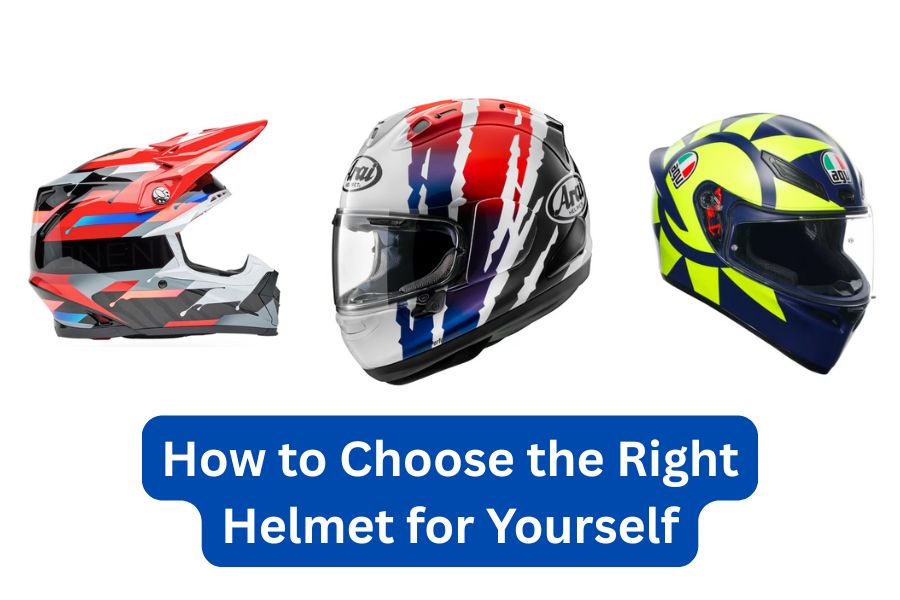For many riders, buying a helmet is as simple as stopping at a roadside stall and picking the cheapest one available. But your helmet is the single most important piece of safety gear you own—it protects your life. Choosing the right one requires more thought than just the price tag. Here’s a complete guide to help you buy the helmet that’s best for you.
1. Understanding Helmet Certifications
ISI (India)
In India, only ISI-certified helmets can be legally sold. These standards are based on older European norms, so while ISI helmets are legal, they’re not always the most advanced in terms of safety.
ECE (Europe)
The latest ECE 22.06 certification is among the most rigorous standards in the world. Helmets with this approval undergo independent testing and are trusted internationally for high safety levels.
DOT (USA)
The DOT certification is common in the U.S. but is often considered weaker than ECE. This is because DOT follows an honour system—manufacturers self-certify without mandatory independent lab testing.
⚠️ Buyer Beware: Some brands in India misuse these labels. They sell ISI-certified helmets but slap on “DOT” or “ECE compliant” stickers without actual certification. Always double-check authenticity before buying.
2. Budgeting for a Helmet
Helmets in India start around ₹1,500 and can go well beyond ₹1 lakh. While you can’t put a price on your head, you also don’t need to overspend. Here are a few things to keep in mind:
-
Expensive helmets usually mean better materials, lighter weight, and advanced safety features.
-
Spares like visors and padding also cost more as the helmet price goes up.
-
You should never hesitate to replace a helmet after a crash, so pick one you can realistically afford to replace if needed.
-
A good balance is to buy the safest helmet within your budget—not the cheapest, but not one that empties your wallet either.
3. Helmet Lifespan
Even if you never crash, helmets expire within 3–5 years. Over time, the shell weakens, foam liners harden, and padding loses effectiveness.
Think of it like medicine—you wouldn’t consume expired tablets, and you shouldn’t wear an expired helmet either. Don’t be emotionally attached to an old helmet; once it’s past its lifespan, replace it.
4. Types of Helmets
Different riding styles call for different helmets:
-
Full-face helmets – Best for everyday use; maximum protection.
-
ADV/Adventure helmets – Great for touring and off-road, with or without a visor.
-
Motocross helmets – Designed for dirt riding; usually worn with goggles.
-
Modular helmets – Flip-up designs for convenience, but slightly compromise on safety.
-
Open-face/half helmets – Light and airy, but least protective.
Shell Materials
-
Thermoplastic / Polycarbonate – Budget-friendly, but weakest.
-
Fibreglass – Stronger and lighter.
-
Composite / Aramid fibre – Top-tier, used in premium helmets for maximum protection.
5. Helmet Strap Systems
Two main mechanisms keep your helmet secure:
-
Micrometric Buckle – Easy and quick to use; common in daily commuter helmets.
-
Double-D Ring – The safest and most secure, used in racing helmets. Takes practice but ensures a firm hold.
6. Getting the Right Fit
A helmet that doesn’t fit correctly is almost as dangerous as not wearing one at all.
-
Measure your head: Wrap a measuring tape around your forehead (one finger above your eyebrows). Use this to pick a size from the brand’s chart.
-
Try before you buy: Sizes vary across brands; what’s “M” in one brand may feel like “L” in another.
-
Snug, not loose: The helmet should hug your head and cheeks. Cheek pads will feel tight initially but loosen slightly with use.
-
Check the padding: If your finger easily slides between your cheek and the padding, it’s too loose. If it’s painfully tight, try a thinner pad or another model.
-
Custom Fit Options: Premium helmets sometimes offer interchangeable padding for a tailored fit.
7. Final Thoughts
No helmet can make you invincible, but the right one can make the difference between walking away from an accident and being seriously injured.
-
Always strap it on securely—whether micrometric or Double-D, an unstrapped helmet is useless.
-
Replace it after an accident or once it reaches its lifespan.
-
Choose one that balances safety, comfort, and affordability.
A helmet isn’t just a piece of gear—it’s an investment in your life. So the next time you shop, don’t just look at the price tag; look for fit, certification, and quality.
Read More:

